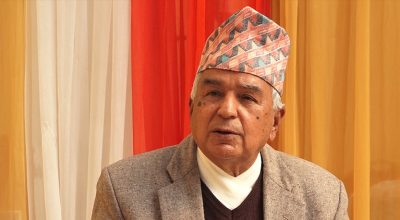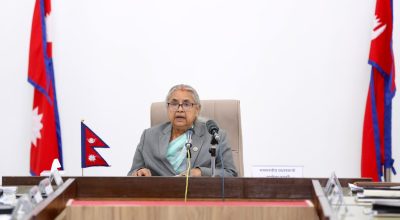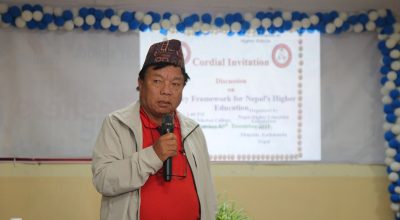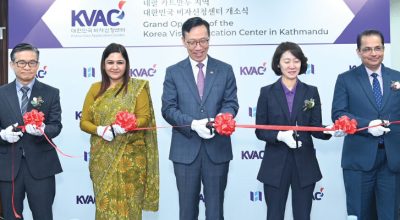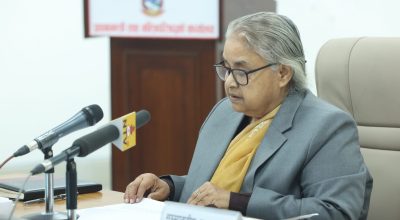
ADDIS ABABA – This November’s United Nations Climate Change Conference (COP27) will come at a time of economic and geopolitical turmoil, affecting food security, public health, and more. But the immediate challenges we face must not distract us from an unassailable truth: the single most important battle our generation will face is the fight against climate change.
Earlier this year, extreme rainfall caused one of South Africa’s deadliest disasters this century. Today, the worst floods in Pakistan’s history have left one-third of the country under water. Far from freak occurrences, such severe weather events are becoming the new normal. Experts believe that extreme rainfall is now twice as likely, owing to climate change, which has also led to other types of devastation, such as droughts and wildfires.
Africa is especially vulnerable to these effects. According to the acting chief economist of the African Development Bank (AfDB), climate change is costing the continent between 5% and 15% of its per-capita GDP growth. As time passes, those losses could increase considerably, with agriculture suffering the most. This would have devastating consequences not only for economic development, but also for food security.
Many are calling COP27 – being hosted in Sharm El-Sheikh, Egypt – “Africa’s COP.” But we in Africa prefer to see it instead as “the implementation COP,” a meeting that will move beyond lofty aspirations and vague pledges to deliver a comprehensive results-oriented agenda. And, yes, that agenda should include delivering greater support – financial and otherwise – to Africa, which has contributed the least to climate change.
To echo AfDB President Akinwumi Adesina, we Africans do not come to beg; we come with resources and solutions. We are already taking concrete action to accelerate the green transition and protect ourselves from the worst effects of climate change.
For starters, African countries are embracing green energy. In recent years, the continent’s renewable-energy capacity rose sharply, with double-digit annual increases in solar, wind, and hydro power. Africa is home to two of the world’s largest solar projects (in Egypt and Morocco), and two of Africa’s 20 fastest-growing companies in 2022 are in the solar-energy business. From Nigeria to Namibia, countries are embracing climate-friendly technologies like green hydrogen.
The African Union Commission is fully engaged in tackling climate change on multiple fronts. The mandate of the AU Commission for Agriculture, Rural Development, Blue Economy, and Sustainable Environment (ARBE) has been broadened to reflect the importance of resilience building, adaptation, and mitigation. ARBE has been working on a number of defining projects with partner organizations, including elaborating on the AU Climate Change Strategy. It also recently contributed to developing an integrated strategy to guide the development and application of weather and climate services in Africa.
Meanwhile, specialized agencies of the AU, such as the African Risk Capacity (ARC) Group, are helping African countries take advantage of technology-based early-warning and preparedness systems to improve their resilience. The organization works closely with governments to strengthen their capacities to protect lives and support reconstruction of damaged infrastructure in the wake of natural disasters. Through ARC Limited, the insurance affiliate of the Group, it provides parametric insurance against extreme weather events.
For its part, the AfDB has shifted its attention – and resources – toward climate change. In 2020, 63% of AfDB funding went to projects related to climate-change adaptation, the largest share of any development finance institution. This year, the Bank committed another $12.5 billion toward climate-adaptation financing through the Africa Adaptation Acceleration Program (AAAP) – an African-led multi-stakeholder body established in 2021.
Africa’s adaptation-financing needs are estimated at $52.7 billion annually through 2030. The AAAP’s funding target was set at $25 billion, with rich countries expected to make up the rest. But, even as Africa pursues – and funds – climate action, the international community’s commitments continue to fall short.
And commitments are only the first step. We commend the British government’s success, at COP26 in Glasgow last year, in mobilizing not only the international community, but also the private sector and civil society, thereby crowding in record climate-finance pledges. But a year on, many of these pledges remain just that: promises.
Perhaps we should not be surprised. After all, at the 2009 COP in Copenhagen, rich countries committed to deliver $100 billion in annual funding to help developing countries advance mitigation and adaptation goals by 2020. Two years after the target date, rich countries’ commitments remain largely unfulfilled.
That is why we are calling for the introduction of improved mechanisms for monitoring and tracking climate-finance commitments. It should not be difficult to attach clear timelines and implementation benchmarks to pledges. Processes for accessing these funds must also be simplified.
It will be essential at COP27 to shift the focus from decisions to action. We do not need more agreements on future progress. Rather, we must translate the achievements of past summits into global cooperation on comprehensive climate action. For example, initiatives to strengthen disaster risk management must take a holistic approach, covering everything from resource mobilization and early-warning systems to technology transfer and capacity-building.
A more holistic approach is also needed in Africa, which is not only highly vulnerable to climate change, but also has considerable development needs. Such an approach will demand a significant capital outlay, which cannot be financed by borrowing without driving already debt-distressed African countries toward crisis.
Beyond fulfilling funding commitments, international actors must provide a broader selection of financing options for all African countries, regardless of their financial position. This effort should include the private sector. To support implementation, African countries will need access to appropriate technical support.
The scale of the climate challenge cannot be overstated. Confronting it will require a combination of mitigation, resilience-building, and adaptation, enabled by strategic partnerships, effective knowledge-sharing, and the delivery of adequate financial support and technical knowhow.
Africa is doing its part. The rest of the world must do the same – beginning at COP27.
© Project Syndicate 1995–2022






